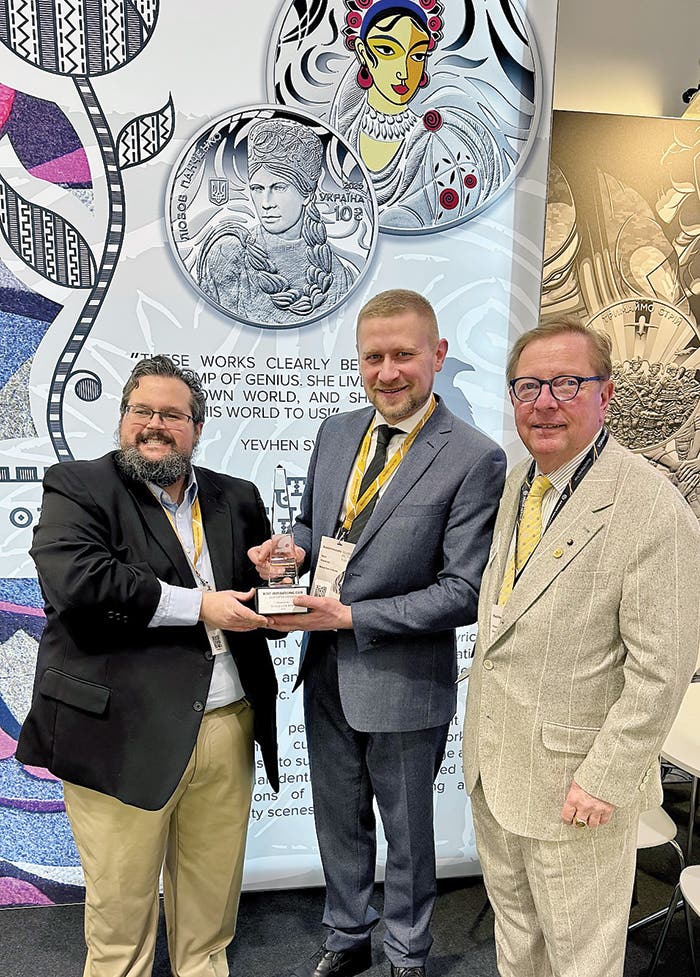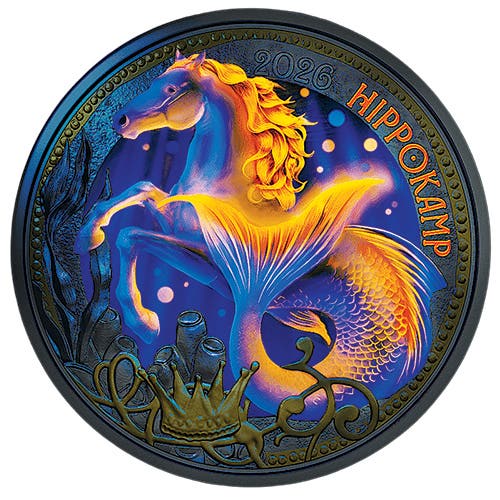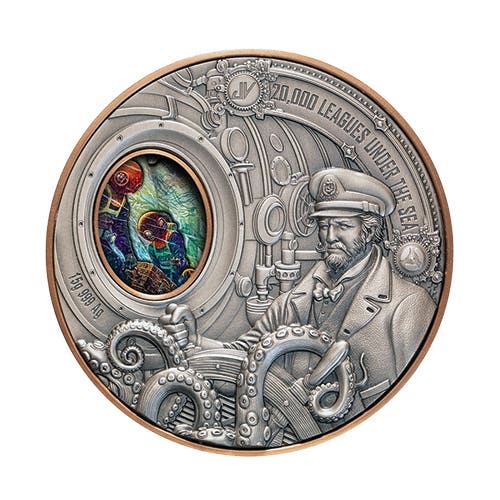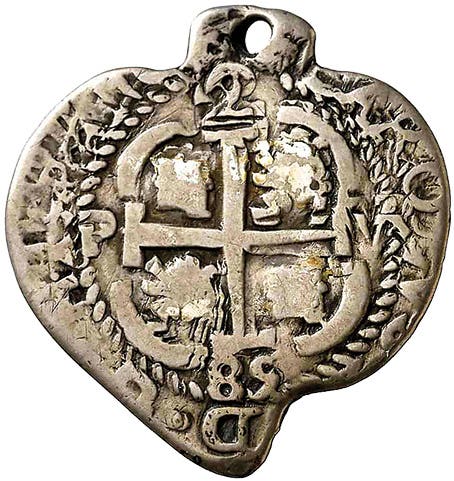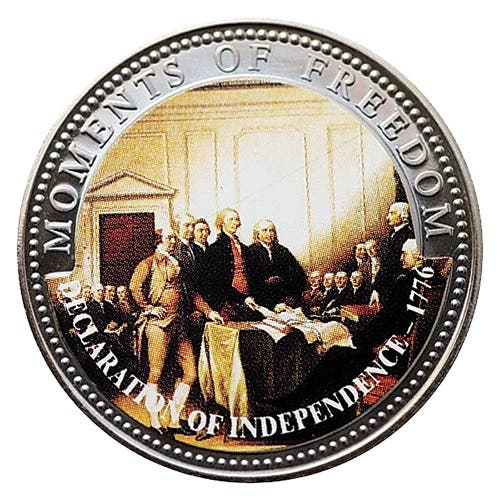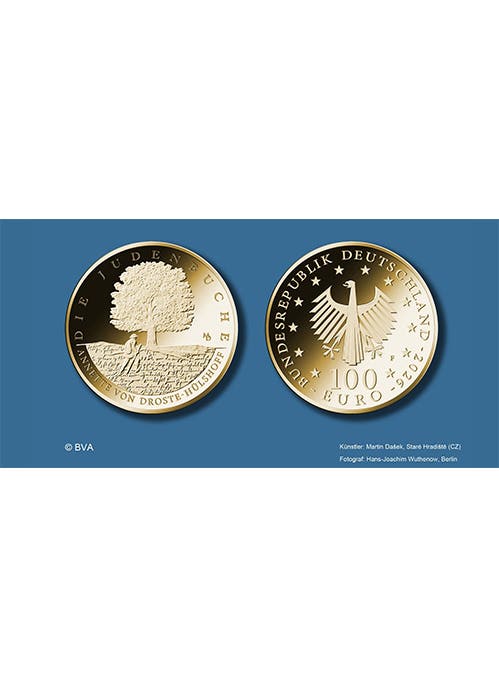Industry Insider: COVID Business Landscape, Part II
View all installments of the five-part Industry Insider series. By Tom Michael Everyone around the globe is adapting their ways of life and work to function as well as is…
By Tom Michael
Everyone around the globe is adapting their ways of life and work to function as well as is possible during a pandemic. We all need to do our very best in both those areas, even when they begin to overlap and mesh together, as many of us have experienced. In our hobbies, it’s likely that adapting means going online for everything. That’s definitely what we are experiencing in numismatics.
For these articles, we are talking with many people to gain the broadest swath of information possible within our field. While it would be impossible for us to talk with everyone, we want you to know that we do care about everyone and hope that you all remain healthy and involved in your hobby. If you have a story to tell about numismatic life during the pandemic, please email us at numismatics@aimmedia.com.
In our shared hobby of coin collecting, it seems quite clear to me that just about everyone I know has done an excellent job of adapting to the pandemic. On individual, small-business, large-business and industry production scales I’ve learned that everyone is using the means at their disposal to keep our hobby vibrant and moving. For me, the hobby of numismatics is a true point of light in troubled times.
In last weeks’ COVID Business Landscape article, we touched base with coin dealers, bullion traders, distributors and one auction house, gaining their perspectives on business changes brought on by the pandemic. This week we will continue our coverage with insights from more auction houses, world mints, coin creators and central banks.
While production has had to be cut at many mints, some are still functioning at near full capacity. Some coin programs have been shifted due to change in dates of their commemorative events, but few have been canceled. Auction houses are dealing with problems in gathering consignments and shipping out lots, but bidding activity has been very strong. All coin businesses we have talked with are well-focused on the health of their staff. In more than a dozen mints, half-dozen auction houses and coin creators, and two central banks, everyone is reporting good health. This has been achieved through conscientious adherence to WHO, CDC and many government guidelines designed to limit the spread of coronavirus. Most all people are reporting use of masks and social distancing, in offices and on production floors. Many are doing much more.
Honey Mamabolo, managing director of the South African Mint described their approach to ensuring the safety and wellbeing of their staff in this way:
“All our decisions are grounded on the fact that people are our biggest asset and their health and safety is our highest priority. There is a COVID-19 Task Team that proactively manages and reports on the pandemic-related risks. We have appointed an on-site Compliance Manager to ensure adherence to the Health and Safety Protocol. There is also an on-site medical doctor – who serves as an Occupational Health and Safety Specialist – and performs bio health risk assessments, declaration of vulnerable employees and screening of employees before they commence with on-site work.”
Mamabolo confirmed that “Our efforts have helped us manage our responsibility towards our employees. The mint is happy to report that it has had no infections on-site to date. To ensure we remain a responsible employer and prevent any transmissions, we have taken the decision to keep a skeleton staff to a minimum at our facilities despite our classification as an essential service.”
This has reduced production for the South African Mint.
Mamabolo clarified that “The business is currently operating at less than 25 percent of production, focusing only on circulation coins. This has meant that the production and sale of collectibles/numismatics and bullion coins were halted, with our walk-in shop and museum also closed for the period.”
Other businesses have also used skeleton staffing or alternating shifts to allow for social distancing. Steve Ivy, Co-Chairman and CEO of Heritage Auctions told me that “we’ve certainly followed all the CDC guidelines about social distancing and are wearing masks.”
The Heritage offices in Dallas have plenty of space, so social distancing is less problematic and the staff has remained healthy, which is great to hear. Shipping and receiving has been done in two shifts when necessary, and when certifying coins is required both Numismatic Guaranty Corporation and Professional Coin Grading Service are still handling the volume with only slight delays.
However, Ivy emphasized that while auctions were remaining on schedule as online events, lining up and picking up consignments for auctions became a problem once travel restrictions emerged.
“We obviously can’t travel to pick up consignments, so that becomes an issue for us.”
Referring to picking up consignments from collectors, Ivy said, “You can’t just hop on a plane and go there or if you can, you might not be able to get back, there’s all sorts of issues.”
Ivy pointed out that this has been an issue “for the last 45 days or so,” but he is beginning to see some remediation now.
With all coin auctions taking place online during the pandemic, we were pleased to hear from most auction firms that bidding activity has been very good.
Regarding Heritage Auctions, Ivy said, “Volume of bidding is good, mainly because there’s a lot of pent-up demand. People can’t get out and go to shops or go to shows, so if they want to buys coins ... buying online is a good alternative.”
Due to U.K. government mandate, businesses were closed and people stayed home for three weeks beginning on March 23. After this period, the Pobjoy Mint reopened production full time.
Managing Director Taya Pobjoy informed me that “We are lucky that our set-up requires us already, in the manufacturing area, to use gloves and most of the staff use face masks too. We have a large facility so most people have their own room. The one thing we have set up are wall hand sanitizers around the office and any communal computer has antibacterial wipes by it.”
Office staff who can work from home are doing so, and so far everyone has remained healthy.
One difficulty Pobjoy mentioned is that they “have had a delay in receiving blanks, which has affected some jobs by a week, but the main delay is shipping. It is difficult to find flights available and they are very expensive!”
U.K.-based coin auctions have continued as well, using the online systems they had established for customers before the pandemic. Baldwin’s of St. James in London moved all its auctions online, with no public viewings. Their staff is working from home and is being kept pretty busy, but all are healthy.
At Dix Noonan Webb, Head of the Coin Department Christopher Webb tells us that they have held four live online auctions during the pandemic, with strong results.
“The collectors market, as always, has been very resilient and we have noticed a surge in online registrations for our auctions, with record numbers of new buyers. The average sales percentage has been over 95 percent.”
Similar boosts to business are happening at most online auctions. In California, Joseph Lang, CEO of Stephen Album Rare Coins, told me that worldwide the number of bidders has increased markedly. They have seen customers participating from 40-50 countries in recent online sales.
When asked about shipping, Lang explained that “72 countries have no postal service right now, so we are holding shipments for lots of successful bidders.”
The staff at SARC is working at the office in shifts to promote proper social distancing. They are wearing masks and following the state guidelines carefully and remain healthy.
Designer Almat Bassenov reports from the National Bank of Kazakhstan that “There are no registered cases of COVID-19 among the staff of the National Bank and Kazakhstan Mint.”
Regarding administration and production, Bassenov tells us that “We are continuing to work, and the mint works as well,” though with a slightly shortened day.
A few coin issues have had to be shifted out a month or two, and the logistics of closed borders and travel restrictions have made delivery of capsules and boxes difficult.
Edith Veldmeyer at the Royal Dutch Mint was happy to report that “we have had no COVID-19 illness within our company.”
Remaining open and operational, their business has still had challenges and changes.
“As we find it very important to support our customers, we have adjusted our way of working,” said Veldmeyer. “Our people work from home as much as possible. However, our production facility is still open and we have taken special measures in order to have employees working in a safe environment. The Royal Dutch Mint recently moved to new premises, so the challenge together with COVID-19 was even bigger. However, we managed to still support our customers and deliver the products ordered.”
Regarding coin program adjustments Veldmeyer said, “We are flexible and are able to adapt to changing situations. For example, we just launched a very successful commemorative coin (75 years of freedom). This time, the ceremonial first strike took place virtually (instead of the traditional physical strike) which allowed many interested collectors and other relations to be present virtually. The majority of our products planned this year, such as ducats, will be launched according to our planning. Some projects are postponed: the project for the Invictus Games will be launched in 2021. The Royal Dutch Mint always tries to think in solutions instead of problems.”
At CIT Coin Invest AG in Liechtenstein, CEO Heimo Steriti sent this good news:
“CIT converted part of the team to remote working from home within a few days and left the rest of the team in the office, in compliance with government regulations. As a result, we have been practically always 100 percent available and have maintained our services, thanks to the great commitment of all our team.”
Steriti continued to say, “Fortunately, everyone on our team and their families were spared the Covid-19 virus, in part because they all followed the guidelines.”
You can begin to see significant similarities in coin-based business approaches to the risks of the pandemic. Social distancing, wearing masks, keeping hands and surfaces clean, working from home; these same methods we are using to protect ourselves and our families are also some of the best protections utilized by mints and auction houses to protect their staff and customers.
Steriti addressed some of the world’s pandemic business landscape in this comment to me: “The actions taken by governments in different countries have varied in severity and sometimes with a time lag, which has been challenging for global companies in many ways. The lock-down came overnight for all companies, but the recovery will take weeks or months.”
Certainly this is true, and the timespan may prove to be even longer, but one other thing I see in common with all the people I have contacted to help generate these reports is this: Every dealer, mint, bank, auction house and distributor in numismatics has proceeded into this pandemic by protecting their employees and developing a plan to serve their customers. The basic fact that none of us have stopped or frozen or tossed up our hands and walked speaks volumes about our character, our base of historical knowledge and our uplifted outlook. Numismatics rocks, my friends, and we should be very pleased with our perseverance!
In some cases, even though health of staff has been carefully protected, government restrictions have forced heavier adjustments to mint production. These difficulties have been met in creative ways by many mints, while remaining within the boundaries of mechanical production facilities.
At the Imprensa Nacional-Casa da Moeda, S.A. in Lisbon, Portugal, António Verdasca, division chief of coins, tells us that “Here in the mint the production and logistics are working in two teams of 50 percent. We may say therefore that we are working at 50 percent of our capacity. Commercial and financial departments are working at home in the home office. Our four shops are open with only one employee and one costumer inside.”
As for the rest of the country, Verdasca relays that “The number of infected people in the hospitals are visibly decreasing and we did not face any rupture in the National Health Service.”
Very welcome news indeed.
Operating production in shifts has proven a good method for the Hungarian Mint also, as General Manager Teréz Horvath explained, “We tried to minimize risk by splitting the staff into weekly shifts: one week active employment another week standby at home. It seems that it has been proven a good decision as we could keep the loyalty and confidence of our colleagues and also could keep off infection and maintain the main activities. All the staff and their relatives remained healthy.”
Horvath explained that sales methods have changed.
“We closed our retail shop and tried to drive the sales online. Online sales and mail orders go well; our customers still do continue collecting. We tried to keep alive interest of them through regular social activities and by drawing attention to others’ activities related to numismatics.”
These proactive approaches, once fun concepts, are now necessities to maintain the health of the business.
Regarding changes to their coin programs, Horvath explained, “No cancellations so far, but paralleled with shifting of international sporting events – Euro Football tournament, Olympics Tokyo 2020 – the issue of the related coins was shifted to the next year, as well. Hungary was planned to host the biggest international event of the Catholic Church of the year 2020, the Eucharistic Congress. It has been postponed to 2021, which resulted in the postponing of the issue of the concerned collector coin as well.”
Not all mints have been able to continue production, however, due to government restriction or practical difficulties in protecting staff. In France at the Monnaie de Paris, Senior Product Manager Julien Sabouret explained that “From mid-March on, all our teams have been requested to do home-office and of course our production has been stopped. As far as we could not do anything concrete such as engraving, tooling… we focused on all our immaterial matters as well as on our product plan for the coming years.” At the mint facility a small staff remains for security. With the program group planning ahead for adjustments the Monnaie de Paris should be prepared to act quickly once reopening becomes a possibility.
As for any coin issue delays, Sabouret explained, “Our aim was not to cancel any program; we postponed a few that were not linked to a particular anniversary and looked forward to match the timing for those with specific dates in the year.”
The Singapore Mint was closed by government directive on April 7 and will remain closed until June 1. Vice President of Program Management Tay Hwee Ping told us that “Schools are closed as well. This period is referred to as circuit breaker period, locally. We are working from home so long as our job function allows.”
So business continues, at least for some stages, and planning ahead may be the best that can be done for now.
In Madrid at the Real Casa de la Moneda, coin production is at a standstill, but other production goes on, according to Jose Barrios Cardona in commemorative coins.
“As a factory of a wide range of products, we have limited its activity to essential and critical services,” Cardona said. “Collector Coins Department, as a non-staple activity, closed its production department.”
The Commercial Department commemorative coins team is working from home, like so many of us.
Cardona explained that this approach was targeted to “preserve the health of the staff and to curb the spread of the virus.”
2020 collector coin programs are on hold for now and will be delayed as a result, but Cardona said, “Initially it is not intended to cancel any of the issues.”
So, regarding staff health and production or service issues, the primary coin market of new issue production finds itself at different stages and in different social circumstances, while secondary coin market providers like auction houses find that they can shift and adjust their businesses with greater ease and more control.
However, selling coins is another matter entirely. In sales, the primary and secondary coin markets are finding similar solutions in the COVID-19 world. We found that they are addressing the problems with the same tools, creating a new numismatic landscape of online platforms. Numismatics for businesses in the pandemic world requires using online systems to buy and sell new and old coins just as it will require communication, research and social interaction among collectors to move primarily online as well.
As an Amazon Associate, Numismaticnews.net earns from qualifying purchases made through affiliate links.




